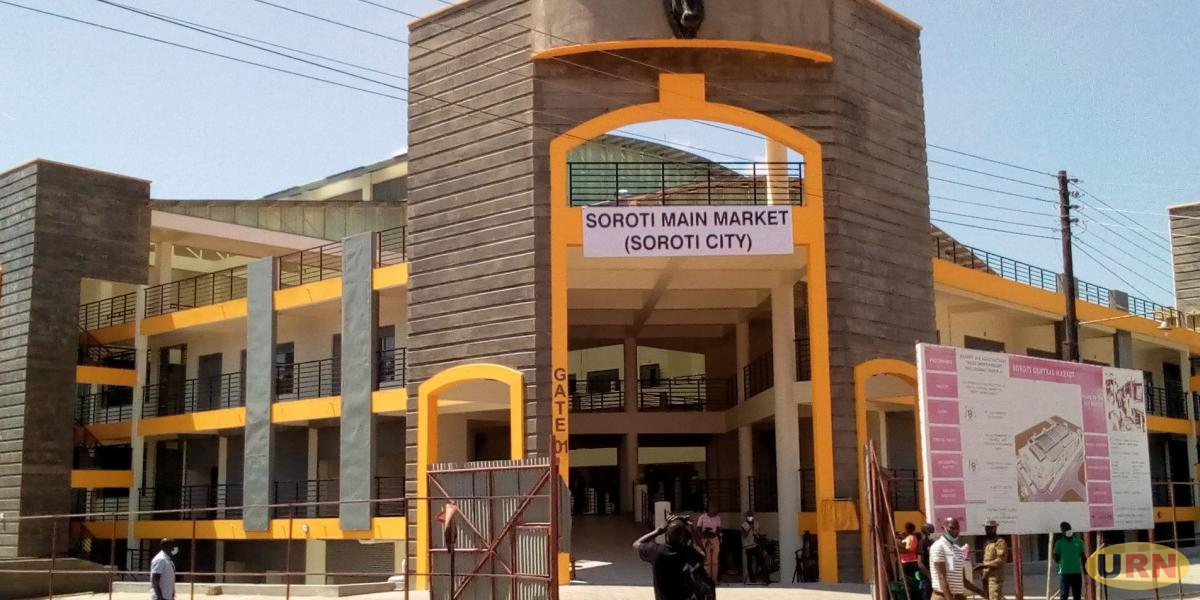Frank Tumwebaze (L), Uganda’s Minister of Agriculture, Animal Industry and Fisheries, thanked AU Member States for voting Uganda
Uganda has taken over the chair of the 5th Session of Specialized Technical Committee (STC) on Agriculture, Rural Development, Water and Environment (ARDWE).
Giving his acceptance Speech as Chair of the STC (2023-2025) on November 17, 2023 in Addis Ababa, Ethiopia, Frank Tumwebaze, Uganda’s Minister of Agriculture, Animal Industry and Fisheries, thanked the African Union Member States for voting Uganda as the Chair of the 5th Session of the Specialized Technical Committee (STC) on Agriculture, Rural Development, Water and Environment (ARDWE).
“Uganda is greatly honored and humbled to be entrusted with this responsibility for the next two years. I would like to thank the Dean of Ambassadors for Eastern Africa, for supporting and fielding Uganda’s candidature,” Tumwebaze said.
He added: “In the same spirit, I wish to congratulate and welcome the other Members of the Bureau (Cameron as First Vice Chair (awaiting submission of the note verbal); Cote d’Ivoire as Second Vice Chair; Namibia as Third Vice Chair; and, Egypt as the Rapporteur). I look forward to working with the Bureau to deliver on the mandate of the STC. I also thank H.E. Amb. Josefa Sacko, the Commissioner, for leading the work of the STC and look forward to your Excellency’s guidance and support during my tenure over the next two years.”
The Minister reiterated the request in the Kampala Declaration endorsed by Heads of State at the 2nd Edition of the G25 Africa Coffee Summit and presented during the Experts segment to recommend to the African Union Assembly of Heads of State and Government to endorse the inclusion of coffee as a strategic commodity in the AU Agenda 2063 at the next AU Assembly in February 2024.
He further noted that food insecurity is rampant with over 280 million people affected in Africa.
“That is one in every five Africans, are hungry. Africa is a net importer of food worth over $50 billion annually, money that should be saved to benefit our poor farmers in rural areas and create jobs for millions of our unemployed youth along the agricultural value chain,” he said.
He added that the continent is facing shocks to its food systems including civil conflicts and external shocks (such as the Russia-Ukraine conflict) on top of climate change that poses an existential threat if no adaptation measures are taken.
“Our markets are disconnected because of infrastructure deficits that limit the expected benefits from the Africa Continental Free Trade Area (AfCFTA). While the tasks are enormous, we can overcome them if we work together in a concerted manner,” he said, adding: “As you are all aware, Africa adopted and has been implementing the Comprehensive Africa Agriculture Development Program (CAADP) since 2003 in Maputo, Mozambique. This framework is now 20 years old. Some progress has been made, but the report that will be presented to you shortly shows that Africa as a whole is not on track to meet the CAADP goals and targets by 2025, yet only two years are remaining to the end of the CAADP Malabo declaration. This means that as Member States, we must increase the pace of CAADP implementation if we are to meet the goals and targets set by our Heads of State and Government in 2014. As we come to the end of the Malabo declaration, I look forward to working with the African Union, Regional Economic Communities, Member States, Private Sector, Civil Society and Development Partners to shape the post-Malabo agenda over the next 12 months. We need to ensure that the post-Malabo agenda (2026-2035) is developed and adopted before the expiry of the Malabo CAADP declaration. With the agreement of Member States, I would like to propose that the summit that will endorse the post-Malabo CAADP agenda be held in Kampala, Uganda. The AUC Commission will guide us on the dates.”
He further said climate change is real and its impacts on our farming systems and livelihoods are visible.
“I am aware that the AU Commission has developed an African Union Climate Change and Resilient Development Strategy and Action Plan (2022-2032) that has ten strategic interventions cutting across the different sectors of our economies. I am particularly interested in the strategic actions that are related to climate resilient agriculture and climate resilient Africa blue economy,” he said.






Embracing climate change shall be a game changer among the African countries in the era of post Malabo diclaration.
Kudos @ Hon Min @ Frank # Tumwebaze # @ MAAIF.